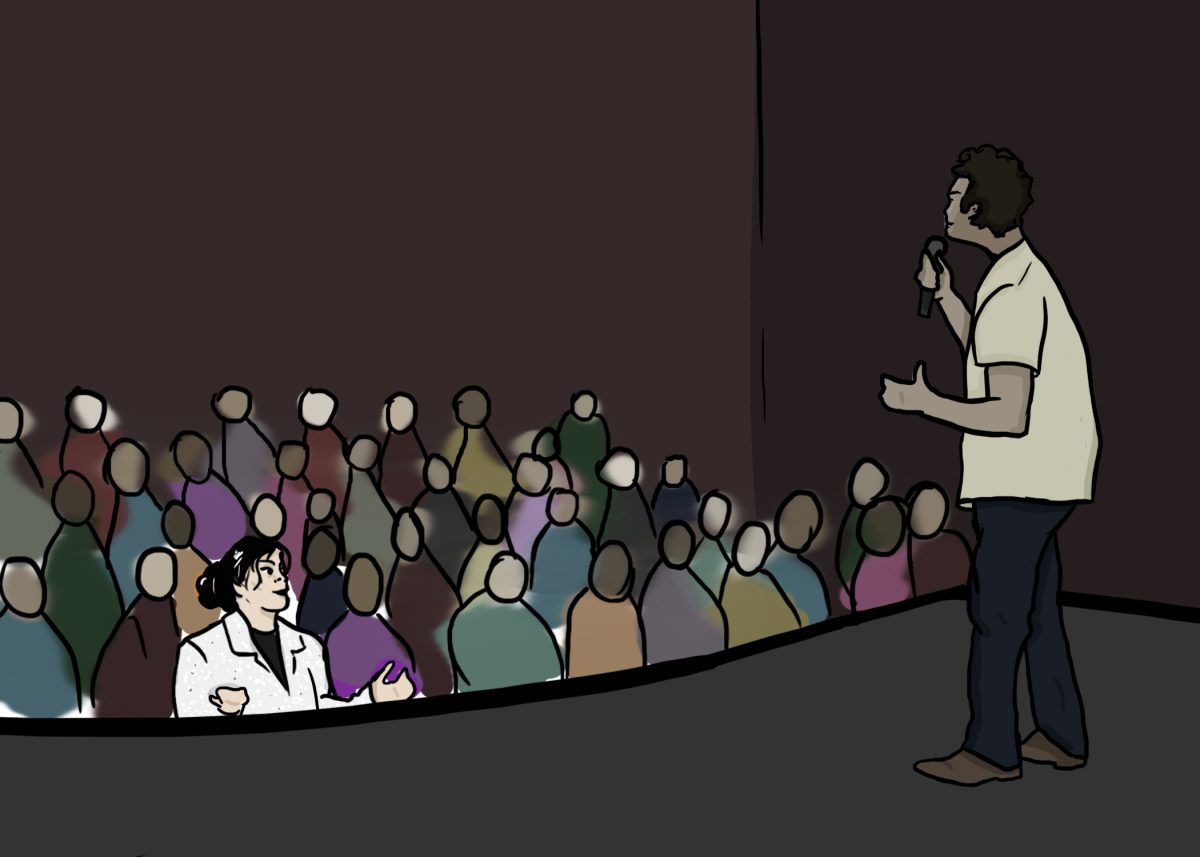Social media has provided a platform to anyone who desires it, regardless of their merit or aesthetic. At no other time in history has a person’s job security rested so heavily in the hands of the masses. While this is normally the case for fast food and retail workers who slander their companies, many are calling for the firings of media personalities they deem “problematic.”
Media figures from Stephen Colbert, Bill Maher and Charlamagne Tha God to comedians such as Louie C.K and Dave Chapelle have all had calls for their removal due to insensitive jokes or comments they have made. However, I think there is value in the problematic rhetoric of these individuals because it is offensive people like them who foster conversations around the observations we are often too afraid to express.
In countries such as North Korea, they are not afforded the freedom of speech we benefit from. Critiques of their government often land people in concentration camps. We also know firsthand that a society oppressed by its monarchs is the tyranny that spurred this country’s birth. Tyranny from one crown in Europe is no different to the tyranny of a million smaller ones in America.
One of the greatest facets of democracy is decentralized thought. Therefore, we need individuals who challenge what is considered appropriate to prevent us from submitting to groupthink and becoming our own tyrants.
However, there is a distinction between someone being offensive and someone being dangerous through their rhetoric.
Any speech that calls for the abuse of a group or perpetuates a violent and threatening narrative against a population is unacceptable and should not be permitted.
For examples of endangerment through speech, we can turn to the textbook of dangerous rhetoric: President Donald Trump.
In a recent speech, he delivered a “joke” in which he encouraged police officers to be rougher with the people they arrest. This is dangerous because it was made during a high point of police brutality, an issue proven to be especially detrimental to the health of black and Hispanic men and women.
In contrast, Colin Moriarty, a YouTuber, was the focus of a Twitter outrage for tweeting, “Ah. Peace and quiet. #ADayWithoutAWoman.” This is an example of good, offensive comedy, not because it evoked the greatest laugh, but because it was in pure comedic intent. While you could argue it was at the expense of women, it was not to their detriment.
You do not have to find the joke funny. In fact, you can be offended, but placing pressure on his employer, Kinda Funny, to fire him is a reckless form of censorship.
It was not a rally cry to abuse women, and a narrative of women as noisy is not one likely to attract danger to their lives. There is not ample reason to take away his platform.
As a country, we need to reconsider how we focus our energy when it comes to policing the rhetoric of our peers. We need to focus on limiting the access to platforms the Donald Trumps of the world receive and increasing the number of Charlamagne Tha God’s, because one adds danger to the lives of marginalized groups while the other keeps us honest. The key is the ability to discern offensive speech from dangerous speech.
America needs to lighten up in this era of vitriol, because nothing is more offensive than the trials of life. If you censor anything potentially funny because it is offensive, then you lose an opportunity for a bit of joy and you will continue to deal with the problematic instances of life. Sometimes it is good to have our feelings hurt because a little pain is a great reminder of what reality is.
-Carrington Tatum is an electronic media sophomore
Categories:
Make America Great Again: Lighten up
September 6, 2017
Photo Illustration by Haley Prieto | Staff Illustrator
0
Donate to The University Star
Your donation will support the student journalists of Texas State University. Your contribution will allow us to purchase equipment and cover our annual website hosting costs.
More to Discover






